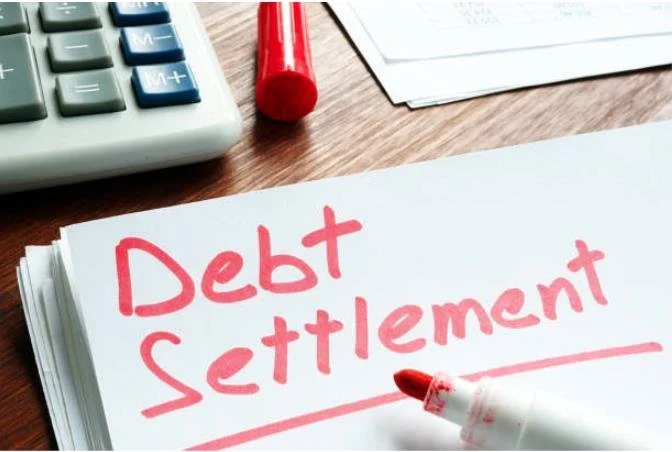Signs You Might Need a Debt Relief Settlement Plan
Are you constantly stressed about unpaid bills, missed payments, or calls from debt collectors?
You’re not alone—and more importantly, there’s a path forward.
At Hikaru Services, we understand how difficult financial instability can be. Through our dedicated division, HS Debt Support, we specialize in helping individuals overcome unsecured debt challenges through legal and strategic debt relief settlement solutions.
By connecting you with experienced consumer protection attorneys and leveraging key federal laws like the FDCPA and Credit Card Act of 2009, we aim to restore your financial freedom and peace of mind.
In this blog, we’ll walk you through clear warning signs that may indicate the need for a debt relief settlement plan and provide professional guidance to help you take the next step.
What Is a Debt Relief Settlement Plan?
Before diving into the warning signs, let’s define the term.
A debt relief settlement plan is a financial strategy where a company negotiates with your creditors to reduce the amount you owe on unsecured debts like credit cards, medical bills, or personal loans. Instead of repaying the full balance, you agree to pay a reduced amount—often in one lump sum or via structured payments.
This option can be a lifeline for individuals overwhelmed by debt but not ready or eligible to file for bankruptcy.
Signs You Might Need a Debt Relief Settlement Plan
1. You're Only Making Minimum Payments
Paying just the minimum monthly payment on your credit cards might keep your account current, but it often barely covers the interest, allowing the principal balance to linger for years.
If you're stuck in this cycle, it may be time to consider a debt relief settlement to regain momentum.
2. Your Debt-to-Income Ratio Is Too High
A high Debt-to-Income (DTI) ratio means you're spending too much of your income on debt payments, leaving little room for essentials or savings. A DTI ratio above 40% is a red flag that debt may be spiraling out of control.
Debt-to-Income Ratio
Financial Health Indicator
Below 20%
Excellent
20% – 35%
Manageable
36% – 40%
Caution zone
41% – 49%
Trouble – consider debt relief
50% and above
Critical – immediate action needed
3. You’re Receiving Collection Calls or Letters
When creditors start calling daily or sending collection notices, it's a serious sign that your account is in default. Continued contact from collection agencies also puts you at risk of legal action, wage garnishments, or lawsuits.
Debt settlement may help stop these communications by initiating a negotiation process through legal representation.
4. You’ve Maxed Out Your Credit Cards
If your credit cards are all at or near their limits, you likely don’t have access to emergency funds and may be relying on credit to cover basic living expenses. This creates a dangerous dependency loop that can be broken through debt relief settlement.
5. You're Using One Credit Card to Pay Off Another
This tactic is known as “credit card juggling.”
While it might work short-term, it’s ultimately a band-aid solution that results in higher interest rates, fees, and emotional burnout. Settlement can consolidate and reduce your overall balances, offering a more sustainable way out.
6. You've Missed Several Payments
Missed payments can tank your credit score and lead to default status. If you’re 30, 60, or 90 days late on multiple accounts, creditors may be more willing to negotiate a settlement rather than pursue costly collections.
7. You’ve Considered Bankruptcy
Bankruptcy is often seen as a last resort because of its long-lasting effect on your credit (typically 7–10 years). If you're thinking about bankruptcy but still have some income and assets, a debt relief settlement plan might be a better, less damaging option.
8. You Can’t Afford Basic Living Expenses
If debt payments are eating into your ability to pay for rent, groceries, utilities, or healthcare, the problem is no longer manageable on your own. This is a strong indicator that professional debt settlement assistance is needed.
9. You're Constantly Stressed or Anxious About Money
Debt doesn’t just affect your wallet—it impacts your mental health. If you're losing sleep, withdrawing socially, or feeling overwhelmed daily, it’s time to explore your options for relief.
10. Your Credit Score Has Dropped Dramatically
If you’ve noticed a significant decline in your credit score due to late payments, collections, or maxed-out accounts, settling your debts can help halt further damage and create a path to credit repair.
Conclusion: You Deserve a Fresh Start
Debt can feel like a never-ending storm—but it doesn’t have to be. If you’re showing any of the signs mentioned above, it's time to take control with a debt relief settlement plan.
At Hikaru Services, we’re committed to helping individuals across the U.S. find lasting solutions to unsecured debt. Through HS Debt Support, we offer legal protection, financial strategy, and the compassionate service you deserve.
Frequently Asked Questions
-
Yes, but temporarily. While your score may drop during the process, it can start improving once debts are resolved and you maintain good financial habits.
-
Description Most settlements are completed in 24 to 48 months, depending on your debt load and the creditor's terms. text goes here
-
You can, but professional services offer legal protection and negotiation leverage that individuals typically don’t have. n text goes here
-
Yes, but legitimate firms only charge fees after results are achieved. We ensure complete transparency with no upfront costs.
-
No. Consolidation combines your debts into one loan. Settlement reduces the total amount owed through negotiation.

